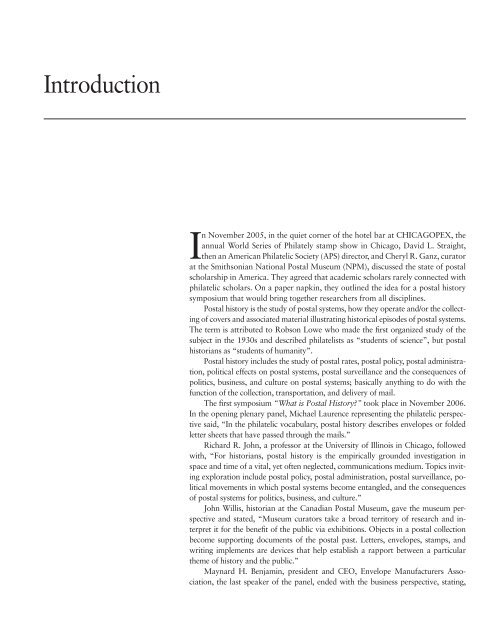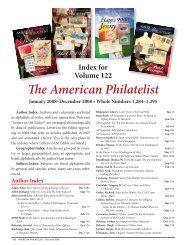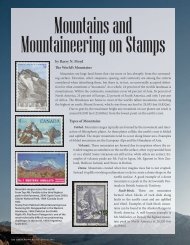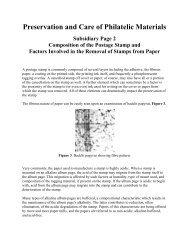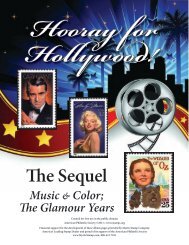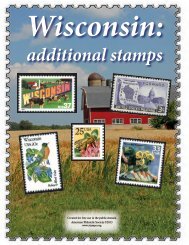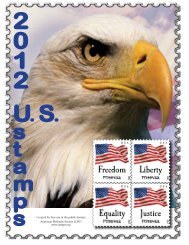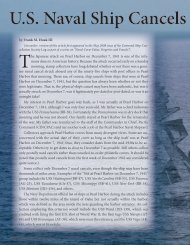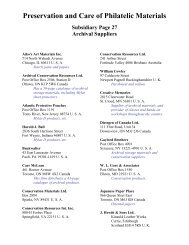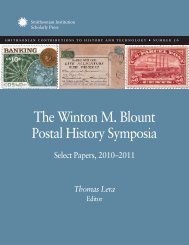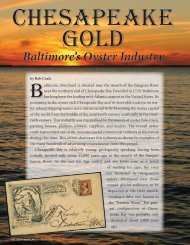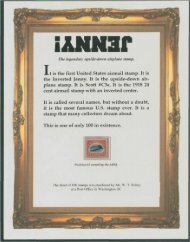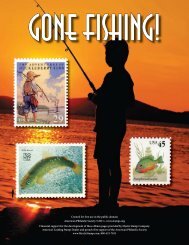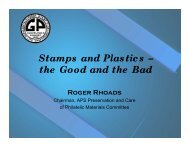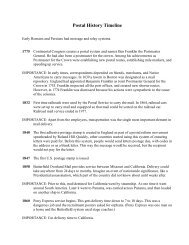The Winton M. Blount Postal History Symposia - Smithsonian ...
The Winton M. Blount Postal History Symposia - Smithsonian ...
The Winton M. Blount Postal History Symposia - Smithsonian ...
- No tags were found...
You also want an ePaper? Increase the reach of your titles
YUMPU automatically turns print PDFs into web optimized ePapers that Google loves.
IntroductionIn November 2005, in the quiet corner of the hotel bar at ChicagoPex, theannual World Series of Philately stamp show in Chicago, David L. Straight,then an American Philatelic Society (APS) director, and Cheryl R. Ganz, curatorat the <strong>Smithsonian</strong> National <strong>Postal</strong> Museum (NPM), discussed the state of postalscholarship in America. <strong>The</strong>y agreed that academic scholars rarely connected withphilatelic scholars. On a paper napkin, they outlined the idea for a postal historysymposium that would bring together researchers from all disciplines.<strong>Postal</strong> history is the study of postal systems, how they operate and/or the collectingof covers and associated material illustrating historical episodes of postal systems.<strong>The</strong> term is attributed to Robson Lowe who made the first organized study of thesubject in the 1930s and described philatelists as “students of science”, but postalhistorians as “students of humanity”.<strong>Postal</strong> history includes the study of postal rates, postal policy, postal administration,political effects on postal systems, postal surveillance and the consequences ofpolitics, business, and culture on postal systems; basically anything to do with thefunction of the collection, transportation, and delivery of mail.<strong>The</strong> first symposium “What is <strong>Postal</strong> <strong>History</strong>?” took place in November 2006.In the opening plenary panel, Michael Laurence representing the philatelic perspectivesaid, “In the philatelic vocabulary, postal history describes envelopes or foldedletter sheets that have passed through the mails.”Richard R. John, a professor at the University of Illinois in Chicago, followedwith, “For historians, postal history is the empirically grounded investigation inspace and time of a vital, yet often neglected, communications medium. Topics invitingexploration include postal policy, postal administration, postal surveillance, politicalmovements in which postal systems become entangled, and the consequencesof postal systems for politics, business, and culture.”John Willis, historian at the Canadian <strong>Postal</strong> Museum, gave the museum perspectiveand stated, “Museum curators take a broad territory of research and interpretit for the benefit of the public via exhibitions. Objects in a postal collectionbecome supporting documents of the postal past. Letters, envelopes, stamps, andwriting implements are devices that help establish a rapport between a particulartheme of history and the public.”Maynard H. Benjamin, president and CEO, Envelope Manufacturers Association,the last speaker of the panel, ended with the business perspective, stating,


